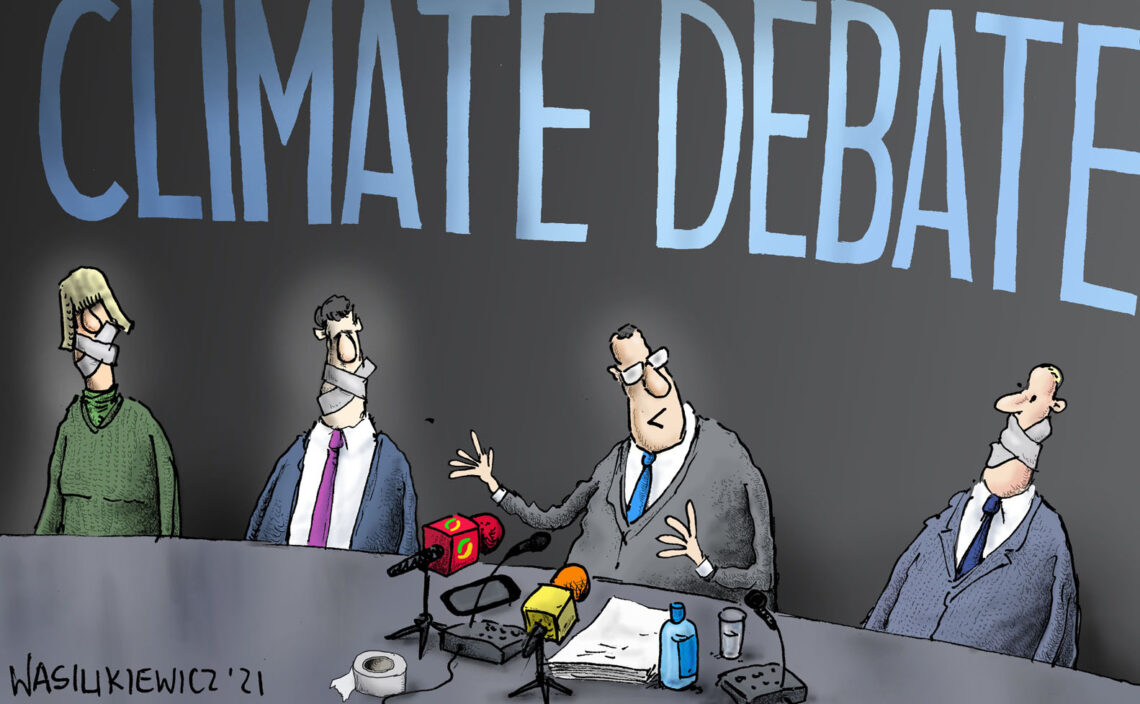Climate, science and the dangers of ‘no alternative’
The idea that free-market systems are the culprit behind climate change has reached dogma-like status. Yet prosperous societies have made the most progress in reducing emissions. If we want to adapt to the dangers ahead, a fact-based debate on the issue must take place.

The use of the term “no alternative” is almost always self-righteous. It insists that there are no other solutions. From the outset, it blocks any debate, differing opinions and especially the scientific process of falsification and verification.
“No alternative” has been one of German Chancellor Angela Merkel’s favorite sayings. It brought her plenty of political success, but the failure to consider consequences or better strategies has hurt both Germany and Europe in the long run.
Ms. Merkel is not the only person in power to make use of the no-alternative strategy. Currently, we can see it being used in climate policy.
Climate dogma
One opinion is widely accepted – especially among politicians – though it is not uncontested: Humankind can slow and even stop climate change because it is mainly caused by people; a green economy is the solution.
It is certainly good for societies to fight pollution, emissions and waste, becoming even more sustainable. More recycling and the responsible use of resources – including human, natural and economic – are important objectives. Many people, companies and organizations are working hard to improve sustainability. Unfortunately, this is occurring to varying degrees in different parts of the world.
Nevertheless, the claim that climate change is solely caused by humans has achieved dogma-like status. Alternative views are dismissed out of hand. Yet, the essence of science is to gain knowledge, even if the process does not end in the desired result. Science is so wide and complex that it requires an open – and often contentious – debate, based on mutual respect and tolerance.
A more tolerant, open climate debate would help us to better adapt and thrive.
Nature is rarely stable. Its core principle is adaptation and evolution. As any geologist will tell you, climate change is a regular occurrence on earth. Periods of warming and cooling happen frequently. There are many reasons for these changes: fluctuations in solar radiation, the earth’s angle of rotation, increasing heat in the magma under the earth’s surface (which causes more frequent earthquakes and stronger volcanic eruptions, while also warming the oceans which release more CO2). The cycles are sometimes gradual but can be abrupt, as the sudden extinction of the dinosaurs proves.
Climate change is normal. It is certainly preferable to face slow, gradual changes than rapid ones. But such shifts in climate are not necessarily in our hands.
The public debate has already concluded that there is an obvious culprit: an economic system geared toward profit. We should substitute the free-market system with a framework of state intervention, high taxation and technocratic control, the argument goes.
Such claims can be neither empirically nor scientifically sustained. To the contrary, we know that prosperous societies are more successful in reducing emissions and pollution than developing ones. Societies like those in Europe have markets and entrepreneurship to thank for their prosperity. It is time to face the fact that private business is spearheading sustainability.
Time to adapt
The target of net-zero carbon emissions is laudable. But what if the world does not achieve it? Any number of reasons could lead to this scenario: the climate targets might not be realistic, nonhuman factors may have a stronger effect, wrongheaded politics could cause new problems. It is crucial that we not be narrow-minded about this debate.
Climate change is likely something we will simply have to prepare for and live with. Already in forestry, for example, it has become clear that the types and varieties of trees in forests will have to adapt to the new conditions.
It would be wonderful if climate change slows down. But wise leadership must adapt to the opportunities and risks of changing circumstances – blindly sticking to a single strategy is almost always disastrous.
At the very least, we need to be more tolerant to open, fact-based debate in politics, academia and the media. Doing so would allow us to find scenarios where we can better adapt and thrive.
